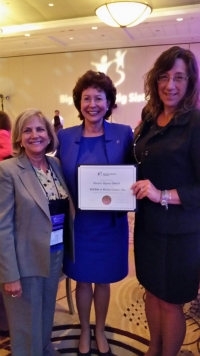Pennsylvania Registration Key to Recovery for Foreign Corporations
Written by Bill MacMinn
By William T. MacMinn, Esquire Reprinted with permission from the July 27, 2015 issue of The Legal Intelligencer. (c) 2015 ALM Media Properties. Further duplication without permission is prohibited.
The Superior Court confirmed in the recent decision of Drake Manufacturing Company, Inc. v. Polyflow, Inc., 109 A.3d 250 (Pa. Super. 2015), that a foreign corporation doing business in Pennsylvania must be registered pursuant to 15 Pa.C.S.A. §4141(a) in order to maintain any litigation or recover any damages in the Commonwealth (15 Pa.C.S.A. §4141(a) is now enacted at 15 Pa.C.S.A. §411(a)). The Drake case is an instructive and cautionary tale because the Defendant in that case admitted contractual liability for non-payment, but defended the case solely on the lack of capacity issue. There was no doubt that the Plaintiff was a foreign corporation doing business in Pennsylvania and had not registered as required by Pennsylvania’s Business Corporation Law. Nevertheless, even after many years and several opportunities to obtain the Certificate of Registration, Plaintiff failed to do so until three weeks after winning a verdict in the case.
Defendant properly pled the lack of capacity defense in its Answer, renewed the argument in a motion for non-suit at the close of Plaintiff’s case, and filed post-trial motions requesting judgment n.o.v. Three and a half years passed from the time of Plaintiff’s complaint until verdict, during which time Plaintiff did not make any effort to obtain the required Certificate. Plaintiff presented no evidence on the capacity issue at trial, nor could it since it did not comply with the statute until three weeks later. Further, at the conclusion of the trial Plaintiff allowed the record to close instead of requesting that it be kept open to allow time to obtain and offer into evidence its Certificate of Registration. Plaintiff only submitted its registration as a part of its rebuttal to Defendant’s Motion for Judgment N.O.V. The trial court denied Defendant’s Motion finding that submitting the certificate during post-trial proceedings was permissible. It entered judgment against Defendant in the amount of nearly $300,000.00.
On appeal, the Superior Court reversed the lower court and remanded for entry of Judgment N.O.V. in favor of the Defendant. Holding that registration is an absolute pre-requisite for a foreign Plaintiff doing business in Pennsylvania to maintain a suit and recover damages, the Court further reasoned that the after-acquired certificate could not be accepted during post-trial proceedings, nor could the record be re-opened to accept it because it was evidence that could and should have been presented during trial. The Court further noted that the issue of lack of capacity to sue may be raised either by Preliminary Objection or, as was done here, by Answer and New Matter and cautioned that failure to do either waives the defense.
However, the question remains, is there an earlier time period at which waiver may attach? Notwithstanding Pa.R.C.P. 1028, there may be. In International Inventors Incorporated, East v. Berger, 363 A.2d 1262 (Pa. Super. 1976) the Plaintiff sought a preliminary injunction and damages. There the Defendant properly raised the issue of Plaintiff’s incapacity at the preliminary injunction hearing but the preliminary injunction was nevertheless granted. On appeal, the Superior Court held this was error. The Court explained that the trial court should have denied Plaintiff’s request for an injunction, but should also have stayed the proceedings to give Plaintiff an opportunity to register and thereby cure its lack of capacity. Instead, the Court granted the injunction and is so doing decided “an issue” (i.e. injunctive relief) in the case and thereby allowed Plaintiff to “maintain a suit” in violation of the statute. The Court reversed the grant of the injunction. Although Berger analyzed the issue of timeliness in the context of the Plaintiff’s compliance with registration requirements, the Court’s reasoning also supports the argument that a Defendant, who does not raise the capacity issue prior to preliminary injunctive relief being granted, similarly may have waived the issue for the life of the suit even though the time for responsive pleadings under the Rules of Civil Procedure had not expired. Thus, while the question of the Plaintiff’s capacity may not be at the forefront of case strategy analysis, Berger and Drake are a caution to counsel that the issue cannot be ignored.
Recent Amendments to POA Law Have Unexpected Impact on Commercial Lenders
Written by Joanne MurrayCommercial lenders in Pennsylvania await action by the legislature to fix what appears to be an unintended byproduct of recent amendments to the Pennsylvania Probate, Estate and Fiduciaries (PEF) Code that went into effect earlier this year. You may be wondering what a statute that generally applies to trust and estate matters has to do with commercial lending transactions. The answer is that the recent changes applicable to powers of attorney generally could be interpreted to apply to powers of attorney granted in commercial loan documents, leases and other contracts (such as those granted in connection with confession of judgment clauses and certain other remedies). Historically, these statutory provisions did not apply to commercial agreements. It appears that the legislature was focusing on trust and estate documents when enacting this legislation and didn’t understand the impact of these amendments on commercial transactions.
These amendments are troubling from a lender’s perspective because they require that an agent must “act in accordance with the principal’s reasonable expectations to the extent actually known by the agent and, otherwise, in the principal’s best interest.” In a commercial loan transaction, the agent is the lender and the principal is the borrower, so the tension is obvious: a lender that is foreclosing on property, confessing judgment, collecting rents, or exercising Article 9 remedies is not likely to be acting in the best interest of the borrower.
Pennsylvania House Bill #665 would amend the PEF Code to clarify that the power of attorney requirements do not apply to commercial transactions. This bill is presently in the Senate Judiciary Committee. Until this bill becomes law, lenders should consider making the following adjustments to commercial loan documents containing powers of attorney (typically these include documents with confessions of judgment, security agreements, assignments of rent, and mortgages):
• Include an acknowledgement by the borrower that its reasonable expectations include confession of judgment, foreclosure and other actions typically taken by a lender under the power of attorney;
• Include a waiver of the duties imposed by the PEF Code; and
• Add a notary page.
Patricia Collins, a Partner of the firm, will participate as a panelist on Wednesday, July 29th at 1:00 pm in a Strafford Webinar entitled, "Leveraging Prior Unemployment, Workers' Comp and EEOC Administrative Determinations in Employment Litigation". This CLE webinar will guide employment counsel in using determinations from administrative proceedings to their clients’ advantage in subsequent litigation. The panel will discuss best strategies for leveraging findings and rulings from unemployment, workers’ compensation, EEOC and other administrative proceedings, and navigating varying approaches to the doctrine of collateral estoppel among jurisdictions.
Ms. Collins counsels small to medium-sized business clients and nonprofit entities on employment compliance and risk management issues. She represents employers and employees in litigation under federal and state discrimination and wrongful termination laws relating to restrictive covenants, unfair competition and unlawful use of trade secrets, and compliance with state and federal regulations. She also assists employers and employees in preparing employment agreements, policies and handbooks.
Jessica Pritchard will participate as a panelist in Pennsylvania Bar Institute’s Continuing Legal Education program entitled “Family Law 101” on July 23rd in Philadelphia. The program is designed for lawyers who are new to the practice or stepping into the family law field, and provides an overview of the challenges faced, tools needed and other valuable insights and resources for new practitioners.
Ms. Pritchard chairs the firm's Family Law practice group, where she handles all phases of the negotiation and litigation of domestic relations cases, including divorce, child custody and support, alimony/spousal support, equitable distribution, and prenuptial and postnuptial agreements. She has extensive experience working with high net worth individuals experiencing dissolution of their marriage or partnership.
How marital assets and debts are divided in order to come up with a viable property settlement agreement can be one of the most contentious issues in divorce proceedings. In Pennsylvania, this process is known as equitable distribution. Despite the name, Equitable Distribution does not mean equal division, but in fact the process is based on what the court believes is fair, and several factors are weighed in coming up with a final agreement.
If the parties cannot agree, especially in high net worth divorces, the court will decide how the assets and debts will be divided. The length of the marriage, the age and health of the parties, whether either party contributed to the other's education and training, and a number of other factors all play a part in the outcome. Obviously, the fair division of marital assets and debts has a profound impact on the future financial well-being of divorcing parties. That is why it is so critical that your attorney during the property division process is experienced and knowledgeable in financial matters.
AMM’s Family Law attorneys understand issues related to benefits and assets such as:
• Deferred income benefits;
• Savings, profit sharing and overseas accounts;
• Defined benefit and defined contribution pensions;
• CEO compensation packages, including, ESOPs, cash balance accounts and others;
• 401Ks
Our lawyers have a well-developed network of experienced highly-qualified business valuation and forensic accounting specialists and work with them to achieve transparency and discovery of any hidden assets, as the equitable distribution process unfolds. You can be assured of knowledgeable professional representation which vigorously pursues and fair, positive outcome for your financial future.
When parents separate and divorce, there are serious and legitimate concerns about the ability to support their child(ren). It is important to both custodial and non-custodial parents, and also to the children who depend on them, that child support obligations are fair, reasonable and enforced.
Our family law team is highly skilled in the analysis of complex income calculations, such as those involving self-employment, high net worth and complicated financial holdings. Our representation can help you to navigate through the full range of complicated considerations which are critical to achieving a positive outcome for your family, including:
• Calculation of Child Support
• Income Evaluations
• Child Support Negotiation
• Modification in Child Support
• Enforcement of Child Support Orders
The end of a marriage is one of the most difficult experiences a person can face. Choices that families make during these critical periods can have long ranging consequences. There is so much at stake, both emotionally and financially, and there are many complicated issues that must be considered and resolved. Parental rights, custody issues, asset protection and distribution of marital property are just some of the legal issues which you may face when working through the intricate process of divorce. Our family law attorneys have the experience, understanding and insight to provide advice and counseling to reach the best possible outcomes for you and your family. We work with you to craft a legal strategy designed to achieve your personal and financial goals and minimize the emotional impact of this complex process. Our family law practice group is highly qualified in negotiating a practical, fair and acceptable settlement, but when it litigation is necessary, you can be assured that we are strong advocates who will work tirelessly to protect and preserve your interests.


Student and emerging filmmakers can now enter their submissions for consideration in the 15th Annual Bucks Fever Filmfest. The FilmFest is an annual, juried festival that identifies worthy short films and scripts. Winning short films submitted by high school, college and emerging filmmakers are screened at the County Theater in Doylestown, Pennsylvania. Antheil Maslow & MacMinn is proud to sponsor this wonderful creative event in our community.
Sue Maslow, a partner of the firm, and Chairman/President of the Board of Directors of Big Brothers Big Sisters of Bucks County, along with Ursula Raczac, CEO of BBBS Bucks County, accepted that organization's seventh consecutive Quality Agency Award at the National Conference of Big Brothers Big Sisters in Philadelphia on June 3rd. The Award was presented by Pam Iorio, President and CEO of the Big Brothers Big Sisters of America.
As the nation’s largest donor and volunteer supported mentoring network, Big Brothers Big Sisters makes meaningful, monitored matches between adult volunteers (“Bigs”) and children (“Littles”), ages 6 through 18, in communities across the country. We develop positive relationships that have a direct and lasting effect on the lives of young people.
Jessica Pritchard, a Partner with Antheil Maslow & MacMinn in Doylestown, was a presenter at the Bucks County Bar Association's June 1st Training for Pro Bono Opportunities. Ms. Pritchard taught the hour entitled “family law for the non-family lawyer.” The CLE was intended to give pro bono volunteer attorneys a rudimentary understanding of custody and support issues that may arise during their representation of clients.






